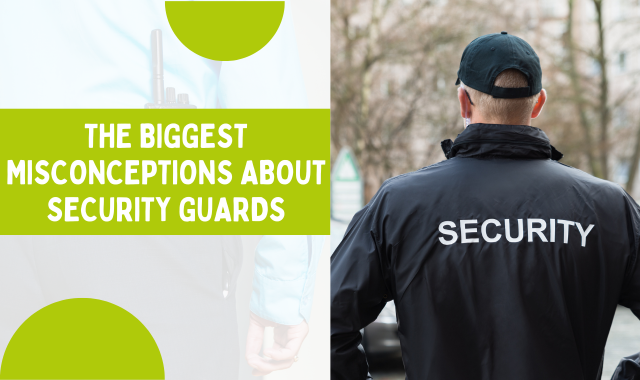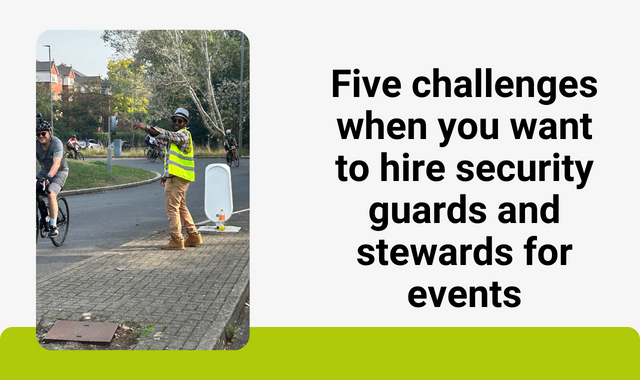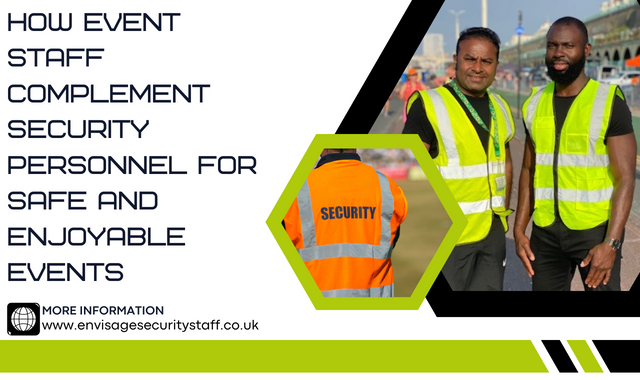Top 3 Reasons to Use Experienced Car Park Staff at Events to Manage Your Car…

The Biggest Misconceptions About Security Guards
The Biggest Misconceptions About Security Guards
Security guards are an essential component of maintaining safety and order in various settings, from corporate offices and retail spaces to large-scale events and residential complexes. Despite their crucial role, there are many misconceptions about what security guards do and the value they bring. In this blog, we aim to debunk some of the biggest myths about security guards and shed light on the reality of their profession.
1. Misconception: Security Guards Are Unskilled Workers
One of the most common misconceptions is that security guards require little to no skill or training. In reality, security guards undergo rigorous training to handle a wide range of scenarios. They learn conflict resolution, emergency response, surveillance techniques, and legal guidelines. Many also receive specialised training for specific environments, such as hospitals or high-security facilities. They also need to have an SIA Licence.
2. Misconception: Security Guards Are Not Needed in Safe Areas
Some people believe that security guards are only necessary in high-risk or dangerous areas. However, security guards play a vital role in preventing incidents before they occur, regardless of the location. Their presence alone can deter criminal activity, and they provide a sense of security and reassurance to employees, customers, and residents in any setting.
3. Misconception: Security Guards Are Only There to Respond to Crime
While responding to criminal activity is a significant part of a security guard’s job, their duties are far more comprehensive. Security guards monitor surveillance systems, conduct regular patrols, ensure compliance with safety regulations, assist with access control, and provide customer service. They are proactive in preventing incidents and maintaining a safe environment.
4. Misconception: Security Guards Are Overbearing and Unapproachable
The stereotype of the stern, unapproachable security guard is outdated. Modern security guards are trained to interact professionally and courteously with the public. They often serve as the first point of contact at an event or facility, providing assistance and information to visitors. Good security guards balance authority with approachability, ensuring people feel safe and welcome.
5. Misconception: Security Guards Are Not as Effective as Police Officers
While security guards and police officers have different roles, both are essential to public safety. Security guards focus on the specific site they are assigned to, providing a constant presence and immediate response to incidents within their jurisdiction. They complement the work of police by handling minor incidents and preventing situations from escalating, allowing law enforcement to focus on more serious crimes.
6. Misconception: Security Guards Are Expensive and Unnecessary
Hiring security guards is often viewed as an unnecessary expense. However, investing in security can save money in the long run by preventing theft, vandalism, and other costly incidents. Security guards can also reduce the liability risks associated with accidents and injuries, providing businesses and property owners with peace of mind.
7. Misconception: Security Guards Are All the Same
Another common myth is that all security guards are alike. In reality, security guards come from diverse backgrounds and have various levels of expertise. Some specialise in specific areas such as cybersecurity, executive protection, or event security. Their skills and experience are tailored to the specific needs of the job they are hired for.
Security guards are vital to maintaining safety and order in a variety of settings
Dispelling these misconceptions is important to appreciate the complexity and value of their work. Whether they are preventing incidents, assisting the public, or responding to emergencies, security guards provide an indispensable service that benefits everyone. By understanding and acknowledging their true role, we can better appreciate the professionalism and dedication they bring to their jobs every day.


